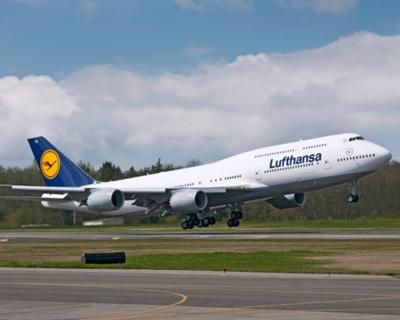Strikes Cost Airlines Over $10 Billion Over Five Years, According To A Report
The CEOs of Europe’s largest airlines, joined EU policy-makers, tourism boards, consumer groups and research centers at an event Tuesday where the airlines issued a call for action in order to reduce the impact of air traffic controllers’ strikes on Europe’s economy.

Since 2010, Europe’s skies have been disrupted 213 days due to strikes from air traffic controllers (ATC) forcing A4E member airlines to cancel 30,000 flights across the continent. More than two million passengers saw their flights cancelled, while others experienced delays of more than 6 million minutes directly affecting their travel plans. This affects cross border trade, tourism, business, and investment.
A4E released a new study on the economic impact of Air Traffic Control (ATC) strikes in Europe during its first “CEO Summit on Air Mobility and Prosperity” in Brussel, today. The analysis compiled by PwC reveals that between 2010-15 the overall impact of ATC strikes reduced European Union GDP up to €9.5 billion (approx $10 billion) (at 2015 prices). Unless the situation is tackled, the costs of ATC strikes between 2015-20 will be of similar magnitude to the entire GDP of Malta.
From 2010 to 2015, there were 167 ATC strike days in the EU – one disrupted day every 13 days. In total there were 213 disrupted days during this period if you take into account the days before and after an ATC strike as flights had to be cancelled proactively in advance and accumulated delays spilt over to the next day. Across the EU, ATC strikes occur the most frequently in France, followed by Greece, Italy and Portugal and resulted in 30,000 cancellations and more than 6 million minutes of delay among A4E airlines.
“The European aviation sector – with 900 million passengers each year – is one of the best performing parts of the European economy. Any disruption has severe knock-on effects on tourism and other sectors. We cannot let this destruction of productivity continue. These latest figures should provide a wake-up call for politicians in Brussels and the member states to work together with stakeholders on long-term solutions to protect individual mobility and European prosperity," said Thomas Reynaert, Managing Director of A4E.

The majority of the economic impact of ATC strikes is felt through reduced tourism spending. PwC suggests the overall impact through this channel over the past six years amounts to around €5.6 billion (approx. $6.1 billion) or just above €930 million a year.
“Air travel is a crucial enabler of economic activity in Europe, directly affecting the wider tourism industry, businesses across most sectors of the economy, and job creation. Even a small increase in air travel can bring substantial socio-economic benefits, especially in areas of Europe affected by high youth unemployment. To ensure an efficient European network providing a crucial conduit for trade, tourism and economic growth, our call for action outlines nine principles to promote free movement by air, reliable airspace and prosperity," said Thomas Reynaert, Managing Director of Airlines for Europe A4E.

Solutions exist to minimize the negative impact of ATC strikes on the mobility of Europeans. Some of the suggestions put forward by the airlines in their call for action include for air traffic controllers and their unions to voluntarily commit to:
- Participate in arbitrary or conciliatory procedures, before taking industrial action.
- Protect flights overflying the country affected by industrial action while ensuring this does not come at the expense of flights to and from the country affected.
- Provide a 21-day advance notification of strike action.
- Provide a 72 hour advance notification of participation in industrial action, at individual employee level, so that airlines can better anticipate the level of disruption.
- Implement cooperation mechanisms to explore means to
- minimize the impact of ATC service disruption.
A4E challenges all signatories to the “Call for Action” to also consider longer term, more ambitious solutions, such as:
- Service provision by one or a group of third country ANSPs over the country affected by strike action.
- Right of redress with ANSPs for the impact of disruption
- resulting from strike action, to encourage constructive
- engagement in industrial relations disputes.
- Minimum service provisions.
“It is about time we work together to reduce the impact of these strike actions. Although we fully respect the right to industrial action, the demands of increasingly mobile European citizens and businesses cannot be taken hostage by localized industrial action," added Reynaert.
(Source: A4E news releases)
 Classic Aero-TV: Remembering Bob Hoover
Classic Aero-TV: Remembering Bob Hoover ANN FAQ: Follow Us On Instagram!
ANN FAQ: Follow Us On Instagram! ANN's Daily Aero-Linx (05.15.24)
ANN's Daily Aero-Linx (05.15.24) ANN's Daily Aero-Term (05.15.24):Altimeter Setting
ANN's Daily Aero-Term (05.15.24):Altimeter Setting Aero-News: Quote of the Day (05.16.24)
Aero-News: Quote of the Day (05.16.24)





